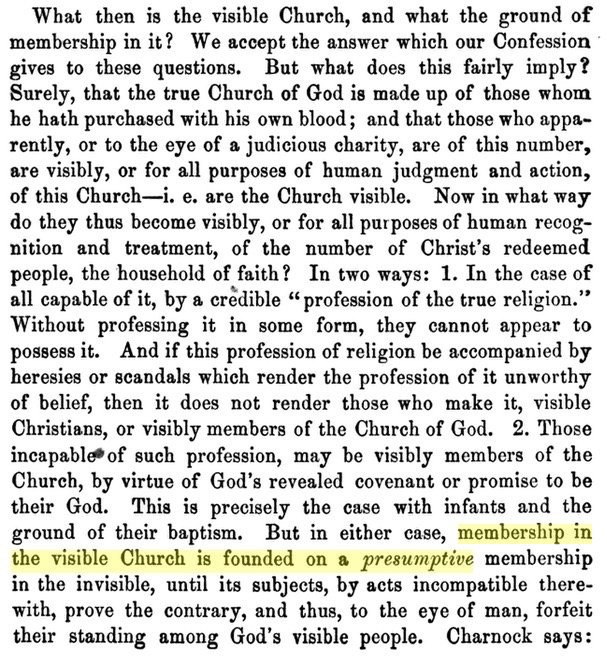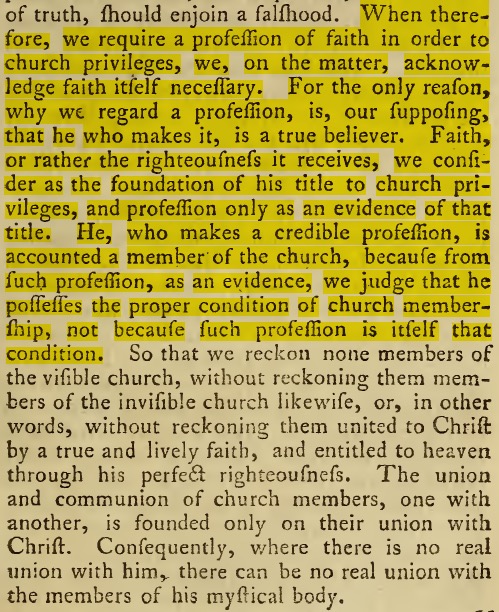Resources
Interactive Outline of John Owen’s Exposition of Hebrews 8:6-13
On 07, Jun 2013 | In Resources | By Brandon Adams
In talking with a number of well read people, I have been surprised how many of them are completely unaware of John Owen’s contribution to covenant theology. I had one person ridicule baptists for rejecting “Reformed orthodoxy” in the Westminster Standards because of our view of covenant theology. He then informed me he would “stick with Witsius, Owen, Petto, and Colquhoun.” This man was completely unaware that John Owen rejected the “Reformed orthodoxy” of the Westminster Standards.
Owen rejected the formulation of the Westminster Confession (one covenant, two administrations) and held that the new and the old were two distinct covenants with two different mediators and everything else that follows. I believe he provides a valuable contribution to current debate over covenant theology and everyone who is interested should read him. However, I also know not everyone has time to read through his 150 pages on Hebrews 8:6-13, so I have created a summary outline of Owen’s argumentation. I created it in a collapsible format to make it easier to follow the progress of his arguments. Hopefully this will interest people in reading Owen, which will hopefully lead to a better understanding of covenant theology for us all.
Here is the link:
Owen on Hebrews 8:6-13 (Collapsible Outline)
Here are a couple of quotes to give you a taste:
The judgment of most reformed divines is, that the church under the old testament had the same promise of Christ, the same interest in him by faith, remission of sins, reconciliation with God, justification and salvation by the same way and means, that believers have under the new… The Lutherans, on the other side, insist on two arguments to prove that there is not a twofold administration of the same covenant, but that there are substantially distinct covenants and that this is intended in this discourse of the apostle…
…Having noted these things, we may consider that the Scripture does plainly and expressly make mention of two testaments, or covenants, and distinguish between them in such a way as can hardly be accommodated by a twofold administration of the same covenant…Wherefore we must grant two distinct covenants, rather than merely a twofold administration of the same covenant, to be intended. We must do so, provided always that the way of reconciliation and salvation was the same under both. But it will be said, and with great pretence of reason, for it is the sole foundation of all who allow only a twofold administration of the same covenant, ’That this being the principal end of a divine covenant, if the way of reconciliation and salvation is the same under both, then indeed they are the same for the substance of them is but one.’ And I grant that this would inevitably follow, if it were so equally by virtue of them both. If reconciliation and salvation by Christ were to be obtained not only under the old covenant, but by virtue of it, then it must be the same for substance with the new. But this is not so; for no reconciliation with God nor salvation could be obtained by virtue of the old covenant, or the administration of it, as our apostle disputes at large, though all believers were reconciled, justified, and saved, by virtue of the promise, while they were under the old covenant.
Having shown in what sense the covenant of grace is called “the new covenant,” in this distinction and opposition to the old covenant, so I shall propose several things which relate to the nature of the first covenant, which manifest it to have been a distinct covenant, and not a mere administration of the covenant of grace.
–
This covenant [Sinai] thus made, with these ends and promises, did never save nor condemn any man eternally. All that lived under the administration of it did attain eternal life, or perished for ever, but not by virtue of this covenant as formally such. It did, indeed, revive the commanding power and sanction of the first covenant of works; and therein, as the apostle speaks, was “the ministry of condemnation,” 2 Cor. iii. 9; for “by the deeds of the law can no flesh be justified.” And on the other hand, it directed also unto the promise, which was the instrument of life and salvation unto all that did believe. But as unto what it had of its own, it was confined unto things temporal. Believers were saved under it, but not by virtue of it. Sinners perished eternally under it, but by the curse of the original law of works.
–
No man was ever saved but by virtue of the new covenant, and the mediation of Christ in that respect.





